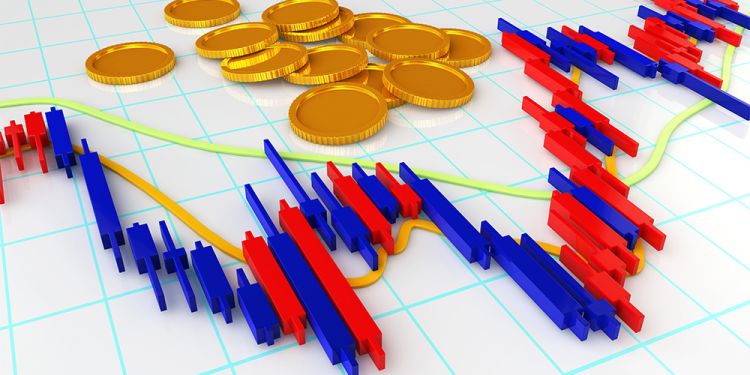Introduction Definitions and Basics
● Productivity, from the Concise Encyclopedia of Economics
● Productivity—the amount of output per unit of input—is a basic yardstick of an economy’s health. When productivity is growing, living standards tend to rise. When productivity is stagnating, so, generally, is well-being….
● Productivity can be defined in two basic ways. The most familiar, labor productivity, is simply output divided by the number of workers or, more often, by the number of hours worked. Output can be anything from tons of steel to airline miles flown, but more generally it is some very broad aggregate like gross domestic product. Measures of labor productivity, however, actually capture the contribution to output of other inputs than hours worked.
● Total factor productivity, by contrast, captures the contribution to output of everything except labor and capital: innovation, managerial skill, organization, even luck….
● [See also the updated article, Productivity.]
● Competitiveness, from the Concise Encyclopedia of Economics
● “Competitiveness,” particularly with reference to an entire economy, is hard to define. Indeed, competitiveness, like love or democracy, actually has several meanings. And the question “Is America competitive?” has at least three interpretations: How well is the United States performing compared to other countries? How well has America performed in international trade? Are we doing the best we can?…
● … productivity growth in the United States has been slower than productivity growth elsewhere since then. As a result, foreign living standards and productivity levels are catching up with those of the United States….
In the News and Examples
● Computer Industry, from the Concise Encyclopedia of Economics
● Most economic theory ignores or underplays the contributions of technological progress. Mostly relegated to the realm of “exogenous factors” unaffected by economic policy, innovation enters the accounts chiefly as an effect of capital formation—the accumulation of buildings and equipment. Yet the most careful studies of the sources of productivity growth—by such economists as Lord Peter Bauer, Robert Dennison, and Nobel Laureates Simon Kuznets and Robert Solow—assign only a small share to mere accumulation of capital. Somewhere between 55 and 90 percent of productivity gains spring from other factors, such as the advance of knowledge and innovation….
● Adam Davidson on Manufacturing. EconTalk Podcast.
● Adam Davidson of NPR’s Planet Money talks with EconTalk host Russ Roberts about manufacturing. Based on an article Davidson wrote for The Atlantic, the conversation looks at the past, present, and future of manufacturing. Davidson visited an after-market auto parts factory in Greenville, South Carolina and talked with employees there as well as with executives at corporate headquarters. What is the future of factory work in America? Why are some manufacturing jobs in America while others are in China or elsewhere? The conversation looks at these questions as well as how well or poorly the U.S. education system prepares students for the world of work.
● Is Bethlehem Steel the Canary in the Economic Mine Shaft?, by Russ Roberts on Econlib
● The underlying explanation for the drop in employment in the steel industry over the last half-century is an increase in productivity—the industry gets more done with fewer people. America is not the only nation with less employment in the steel industry. World steel employment is roughly a third of what it was 25 years ago. Virtually all of the steel producing nations, even the ones who allegedly dump their steel on U.S. markets, have fewer people making steel than they did 25 years ago. But world output of steel is up….
● Chris Anderson on Makers and Manufacturing. EconTalk Podcast.
● Chris Anderson, author of Makers: The New Industrial Revolution, talks with EconTalk host Russ Roberts about his new book–the story of how technology is transforming the manufacturing business. Anderson argues that the plummeting prices of 3D printers and other tabletop design and manufacturing tools allows for individuals to enter manufacturing and for manufacturing to become customized in a way that was unimaginable until recently. Anderson explores how social networking interacts with this technology to create a new world of crowd-sourced design and production.
● Ohanian on the Great Recession and the Labor Market. EconTalk Podcast.
● Lee Ohanian of UCLA talks with EconTalk host Russ Roberts about the recession, the recovery, and the state of labor market. Ohanian describes the unusual aspects of this recession and recovery in the United States as shown by the labor market and the unusual performance of hours worked, productivity, and wages. He also discusses the behavior of business investment and speculates as to why this recession and the recovery has been so different in the United States. The conversation closes with a discussion of the role of the foreclosure process in encouraging unemployment.
● Rodrik on Globalization, Development, and Employment. EconTalk Podcast.
● Dani Rodrik of Harvard University talks with EconTalk host Russ Roberts about trade, the labor market, and trade policy. Drawing on a recent paper with Margaret McMillan on trade and productivity, Rodrik argues that countries have very differing abilities to respond to increases in productivity that allow production to expand using fewer workers in a particular sector. When workers are displaced by productivity increases, what is their next best alternative? Rodrik discusses how this varies across countries and policies that might improve matters. He argues that poor countries should subsidize new products as a way of overcoming uncertainty and externalities from new ventures.
● Remittances and the Latin American Dream, by Ibsen Martinez on Econlib
● As his very illuminating book shows, and contrary to what used to be conventional wisdom pertaining German and Japanese economies, U.S. workers achieve the highest productivity in the world in most economic sectors. Obviously, this also applies to immigrant workers, illegal or not, whose countries of origin are plagued by all kinds hindrances to individual initiative and legitimate ambitions of affluence. Viewed this way, immigrant remittances are a trustworthy index of hard work, thrift and family devotion….
● Discrimination, from the Concise Encyclopedia of Economics
● Many people believe that only government intervention prevents rampant discrimination in the private sector. Economic theory predicts the opposite: market mechanisms impose inescapable penalties on profits whenever for-profit enterprises discriminate against individuals on any basis other than productivity. Though bigoted managers may hold sway for a time, in the long run the profit penalty makes profit-seeking enterprises tenacious champions of fair treatment….
A Little History: Primary Sources and References
● Labor, in Lalor’s Cyclopedia of Political Science
● If labor fails to attain the desired object for which it is put forth, it is evidently unfruitful, i.e., unproductive; while, if it be successful, it would seem natural to call it productive…. The idea of productivity changes according as we regard it from the standpoint of the producer, that of the consumer, or that of the national economy as a whole. The first regards all labor as productive which brings him in the desired return for his labor. Thus a thief, who makes a good haul on some expedition, views his labor as exceedingly productive, though the non-thieving classes would hardly agree with him. The consumer deems all labor productive whose achievements he may use, and which he can obtain at a convenient price. From the economic-social point of view, all labor is productive which increases, directly or indirectly, the wealth of society. The services of the statesman and policeman are in this view as productive as those of the shoemaker or tailor…. [II.237.4]


Comments are closed